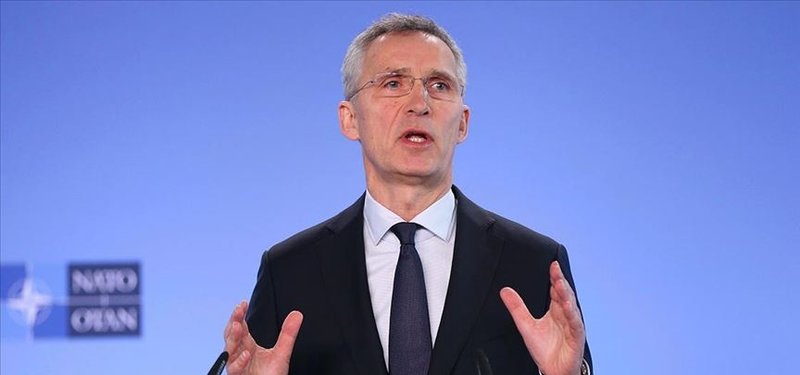
Russia mustn't use false bomb claim to escalate Ukraine conflict: NATO chief
"NATO Allies reject this allegation. Russia must not use it as a pretext for escalation. We remain steadfast in our support for Ukraine," NATO chief Jens Stoltenberg tweeted after a meeting with Pentagon chief Lloyd Austin and British Defence Minister Ben Wallace.
- World
- AFP
- Published Date: 08:34 | 24 October 2022
- Modified Date: 09:05 | 24 October 2022
Russia must not escalate the conflict in Ukraine with false claims that Kyiv is planning to unleash a so-called "dirty bomb", the head of NATO has warned.
Jens Stoltenberg weighed in following Moscow's repeated allegations that Ukraine could deploy such a weapon, sparking fears Russia could use one and blame Kyiv.
The head of the US-led military alliance said he had spoken with Pentagon chief Lloyd Austin and Britain's Defence Secretary Ben Wallace "about Russia's false claim that Ukraine is preparing to use a dirty bomb on its own territory."
"NATO Allies reject this allegation. Russia must not use it as a pretext for escalation. We remain steadfast in our support for Ukraine," he wrote on Twitter.
The Kremlin has alleged that Ukraine is in the "final stages" of developing a dirty bomb.
But a senior military official said the United States has no indication Russia has decided to use nuclear, chemical or biological weapons in Ukraine.
"The Ukrainians are not building a dirty bomb, nor do we have indications that the Russians have made a decision to employ nuclear, chem, bio" weapons, the US official told journalists on condition of anonymity.
The head of the Russian army Valery Gerasimov repeated Moscow's claims in a telephone call with his US counterpart earlier on Monday, the defence ministry said.
The call was the latest in a string of conversations between Russian defence officials and counterparts from NATO countries, during which Moscow said, without providing evidence, that Kyiv was planning to deploy the weapon.
Earlier, a statement from Lieutenant General Igor Kirillov said: "According to the information we have, two organisations in Ukraine have specific instructions to create a so-called 'dirty bomb'. This work is in its final stage".
At its most basic, a dirty bomb is a conventional bomb laced with radioactive, biological or chemical materials which are disseminated in an explosion.
It follows weeks of military defeats for Russia in southern and eastern Ukraine, with observers and Kyiv saying the Kremlin is becoming increasingly desperate.
In Kyiv's first recent announcement of territorial gains, the Ukrainian military claims to have pushed Russian forces from several villages in the northeast of the country.
"Due to successful actions, our troops pushed the enemy out of the settlements of Karmazynivka, Myasozharivka and Nevske in the Lugansk region and Novosadove in Donetsk region," the Ukrainian military said in a statement.
INSPECTION MISSION
Since Russia's allegations and thinly veiled threat of potential nuclear escalation, both Kyiv and its allies have fiercely rejected the claim.
Ukrainian Foreign Minister Dmytro Kuleba said the head of the United Nations nuclear agency (IAEA), Rafael Grossi, accepted his request to "urgently send experts to peaceful facilities in Ukraine, which Russia deceitfully claims to be developing a dirty bomb."
The United Kingdom, the United States and France issued a joint statement dismissing the claim earlier on Monday.
"Our countries made clear that we all reject Russia's transparently false allegations that Ukraine is preparing to use a dirty bomb on its own territory," according to the statement.
With the help of Western-supplied heavy weapons, Ukraine has managed to claw back swathes of its territory from Russia in the east and south, while its power grid has been pummelled ahead of winter.
As momentum has swung toward Ukraine, Russian President Vladimir Putin has faced fissures in domestic support for his campaign, as a messy troop draft and battlefield losses challenged the prospect of a quick conclusion.
Meanwhile the Kremlin said on Monday that France and Germany were showing "no desire" to participate in mediation on the conflict and praised Turkish President Recep Tayyip Erdoğan's offer to organise talks.
Türkiye helped broker the deal that allowed grain exports to resume under the UN's aegis in July, and played a role in a prisoner swap in September, one of the largest exchanges.

